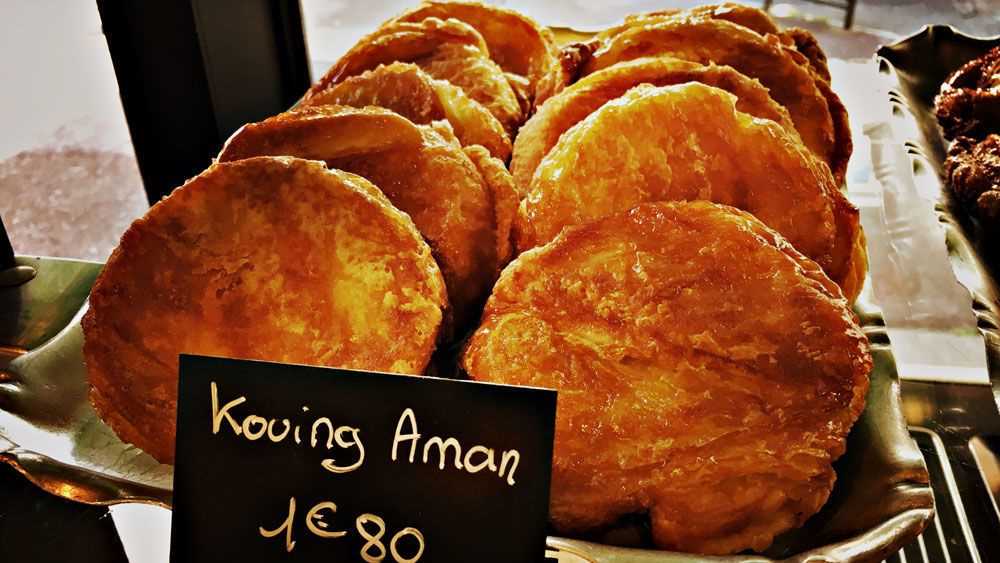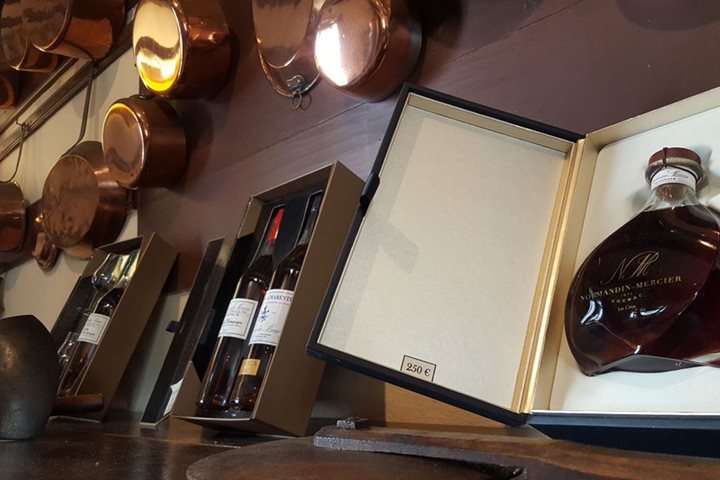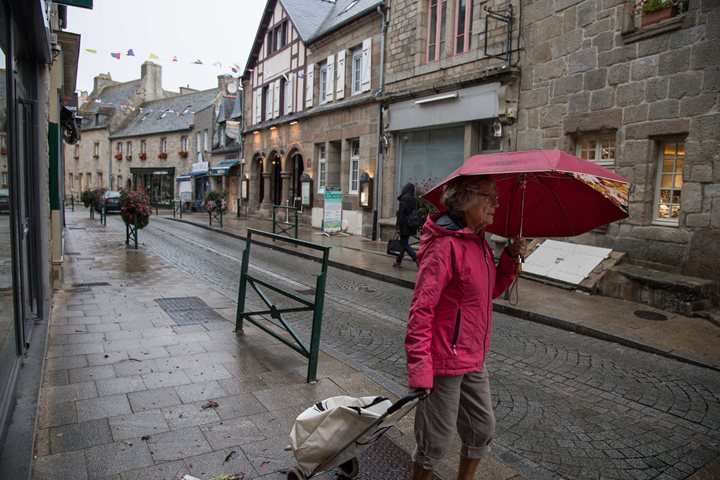Today, we traveled to the Orient. Well, that's a bit misleading…we actually spent the day in Lorient, one of the largest cities in Brittany. Despite its name, Lorient (which means "The Orient") is on France's west coast. It was founded in the 17th Century and named for its important role as a ship building center for the French East India Company.
Some of our passengers went to the picturesque village of Locronan, others visited the remains of a Nazi submarine base, while a third group took part in a sailing excursion. As I needed to stay on the ship this morning to welcome our guest musicians, I spent my one hour of free time on a much more important mission. I was in search of the great golden treasure of Brittany. I don't mean actual gold, which certainly has lured plenty of treasure hunters. No, I'm referring to the luscious and seductive kouign-amann, which, translated from the Breton language, means, "butter cake." It is made of almost equal proportions of flour, butter and sugar, layered together and then baked until crispy. Imagine, if you can, a crunchy, buttery croissant dripping with sweet, finger-licking good syrup.
Those guests lucky enough to choose the Locronan excursion were treated to a taste of this regional specialty as part of their itinerary, but alas, I was doomed to miss out. So I set off on my quest, braving the industrial maze of Lorient's port in search of a good bakery. As I've learned, kouign-amann is a very difficult pastry to master, and not every baker gets it right. It is common to find a perfectly mediocre kouign-amann, even in Brittany. Much like bagels in New York, if you make the mistake of buying a fluffy bagel at the wrong deli, you will be sorely disappointed.
After a 20-minute walk I finally managed to reach downtown Lorient. I was briefly distracted by the siren call of a music store (I am an ethnomusicologist, after all), where, after spending $150, the now very-friendly shopkeeper pointed me in the direction of the best local bakery (take a right before you reach the Sephora, it has a green awning, should you need to know in the future). She warned me that the best kouign-amann would be found in the town of Douarnanez further to the north (which is where the delicacy was invented around 1860) and that I would be unlikely to find a good version here in the big city.
Thankfully, she was mistaken. I spotted them glistening in the window display from at least a block away. I floated into the bakery, picked out two individual-size cakes, one plain and one apple, and plunked down 3 euros and 60 cents. I barely made it out the door before I ripped off the paper wrapping and tore into my first kouign-amann with a fervor similar to that of a man rescued from a deserted island and given his first meal in weeks.
I knew as soon as I took my first bite that this was first-rate kouign-amann, actually the best I have ever had. I don't remember much after that, but I can tell you the next few minutes (or was it seconds?) were beyond delightful. I imagined this was how the Spanish conquistador Francisco Pizaro must have felt when spotting his first gold-clad Inca king. Unlike Pizaro, I resisted the temptation to return to the bakery and plunder it bare. As much as my mouth called out "more!" my brain kept my waistline and arteries in mind, and I made my way back to the ship contented by the successful completion of my mission.
I arrived just as the musicians pulled in, and after helping them set up and treating them to a delicious lunch (yes, I was hungry…don't ask me how), they treated our guests to a fascinating and foot stomping presentation of modernized Breton folk music. The band's name was ARVEST, the Breton word for "spectacle" (also, they told me, the name of their favorite Neil Young album). A popular band in Brittany, ARVEST takes the traditional kan ha diskan vocal style and reinterprets it for contemporary audiences. Their unique blend of ancient roots music with electric and acoustic guitar has been an important part of the explosive revival of the fest noz scene in Brittany.
Fest noz are music and dance gatherings that last through the night. People come together to link arms and dance to traditional music for hours on end in a jubilant celebration of community and culture. ARVEST's infectious music had our guests giving traditional Breton folk dancing a try, to mixed success. After today, I know why Bretons love their folk dancing marathons…they need them to burn off all the calories from overindulging in all that irresistible kouign-amann!








